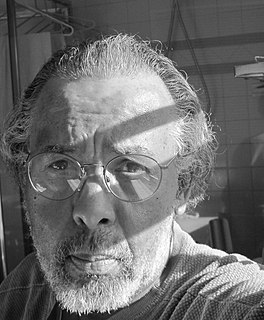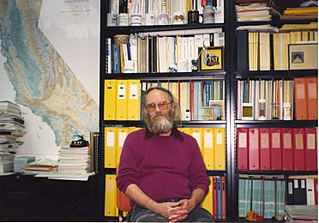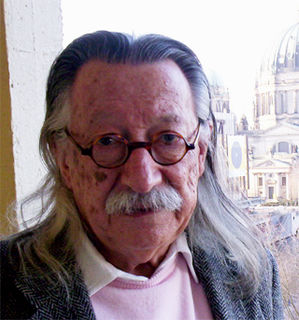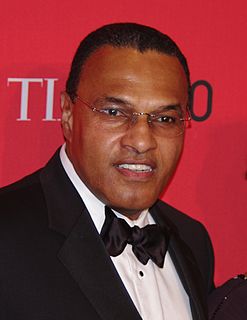A Quote by Scott Adams
Before 'Dilbert,' I tried to become a computer programmer. In the early days of computing, I bought this big, heavy, portable computer for my house. I spent two years nights and weekends trying to write games that I thought I would sell. Turns out I'm not that good a programmer, so that was two years that didn't work out.
Related Quotes
In 1905, when you went motoring, you took your mechanic. Twenty-five years later, mass production revolutionized the role of the automobile, but buying a Ford wouldn't have made sense if everyone still needed a mechanic on board. In 1955, when you used your computer, you took your programmer. Twenty-five years later, mass production revolutionized the role of the computer, but buying a micro wouldn't have made sense if everyone still needed a programmer.
I've never considered soundtracks for what I write. Nor have I considered computer drawing or painting. As a painter, I'm still trying to perfect what I started out doing with brushes, pen and ink, paint, etc. The transition, for me, from typewriter to computer was a big step. I am now very comfortable with writing on a computer but it took awhile. Because I did make that big step I won't rule out what happens in the future.
When you think about it, there's no way to input things into a computer. It's all... the holes only go out, right? Like you can plug a keyboard or a mouse in but that's a trick because the computer thinks the inputs are outputs. That's a programmer trick, basically magic. The key to the future is to make holes that go in too.
My high school, the Illinois Mathematics and Science Academy, showed me that anything is possible and that you're never too young to think big. At 15, I worked as a computer programmer at the Fermi National Accelerator Laboratory, or Fermilab. After graduating, I attended Stanford for a degree in economics and computer science.
When we look at these historical women and what they've gone through, it's shocking to recognize some of our own experiences in theirs. When you look at someone like Ada Lovelace who is the first computer programmer, during her lifetime doctors said that was really sick because she was trying to use a masculine kind of brain that she didn't have. Today, her legacy of being the first programmer is stil disputed.



































